
The alarm clock rang at 4:30 a.m. Why? The Ban Fossil Ads conference in Barcelona! After a 17-hour train ride, we finally arrived. The meeting was organized by Subvertisers International and the Fossil Free campaign from the Netherlands. They invited people from all over the world. The aim was to bring together people who are involved in outdoor advertising in the broadest sense and who are working to abolish advertising and sponsorship for fossil fuel products and services.
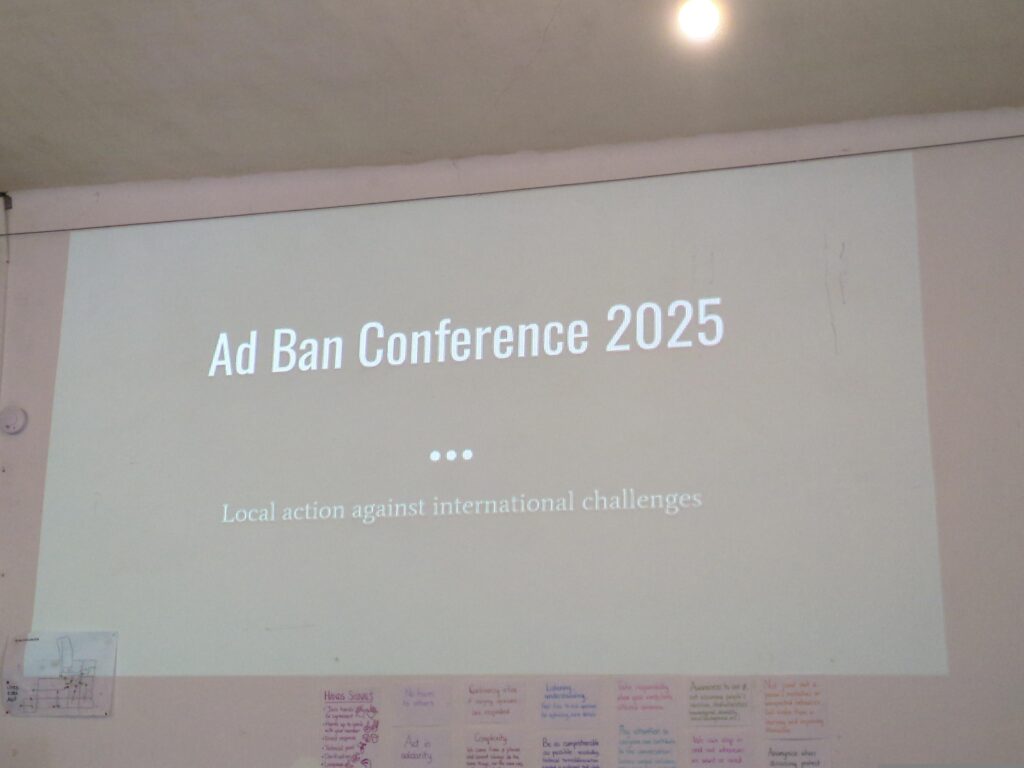
Three-day program
For three days, from September 12 to 14, we listened to reports from the anti-advertising movement and debated strategic steps. But it wasn’t all dry input: on the last day, a few conference participants jumped out of the seminar room into the pool, aka the water collection basin. And we drove robots.

Long journey
The journey to the conference was very long. It is 1,890 kilometers from Berlin to Barcelona. With delays, it takes almost 20 hours by train. There was also a strike in France. But we got to see so many beautiful places. In Paris, for example, we discovered a self-driving robot subway (a sensation for Berliners!). And the Gare de Lyon is also very impressive. So many people! And hardly anyone bumping into the other people waiting in a bad mood!

Our hostel
Once we arrived in Barcelona, we first went to the hostel and then to see Barcelona. We were staying in downtown Barcelona. The hostel was a huge, streamlined block in the middle of a residential area. The constant stream of tourists (mostly around 18 years old) gave me even more understanding for the ongoing protests against overtourism and rising rents in Barcelona. But we didn’t come here to see the city, we came to change the world.
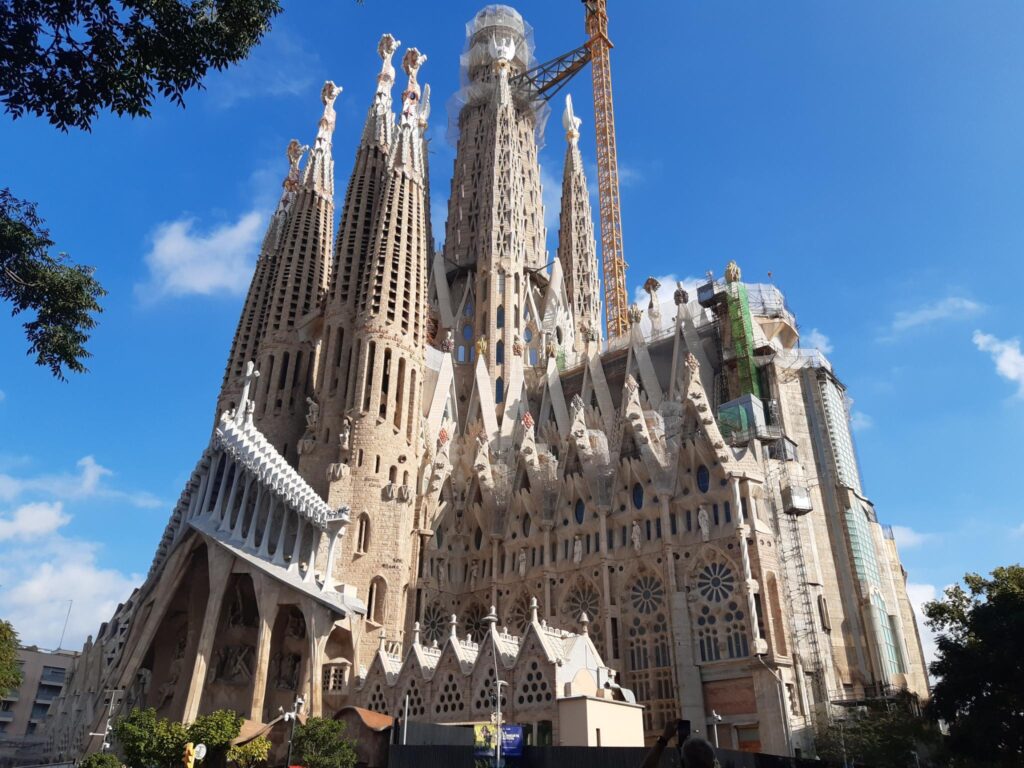
Tourism
Of course, we did take a little time to see the city: there are two buildings by the architect Gaudi very close to our hostel. Some visited the Catalan Museum. The old town with the remains of the Roman wall is well worth a visit. Or simply swimming at the beach with palm trees: one of the few things that Berlin really doesn’t have to offer.
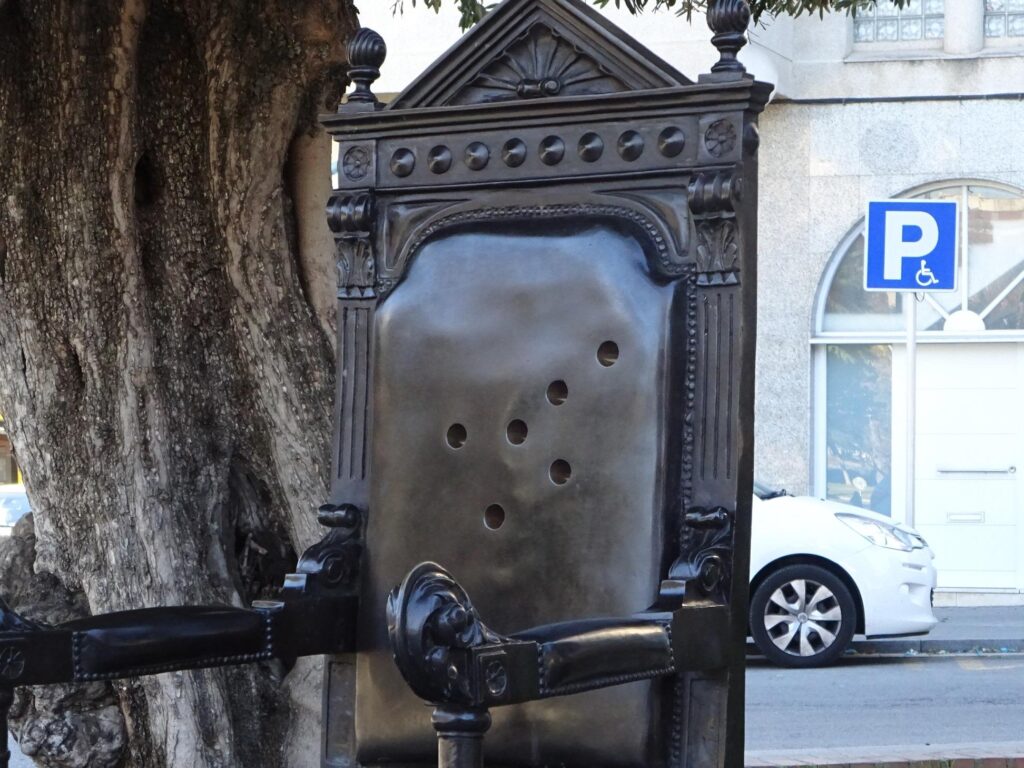
The empty chair in Badalona
There are few, if any, memorials to Franco’s dictatorship from 1936 to 1975. One of our group discovered one on the way to the beach in Badalona. It is a statue. It shows a larger-than-life empty official chair. With bullet holes in it. This is how the city commemorates Mayor Frederic Xifré i Masferrer. He was murdered in 1940 by right-wing coup plotters.
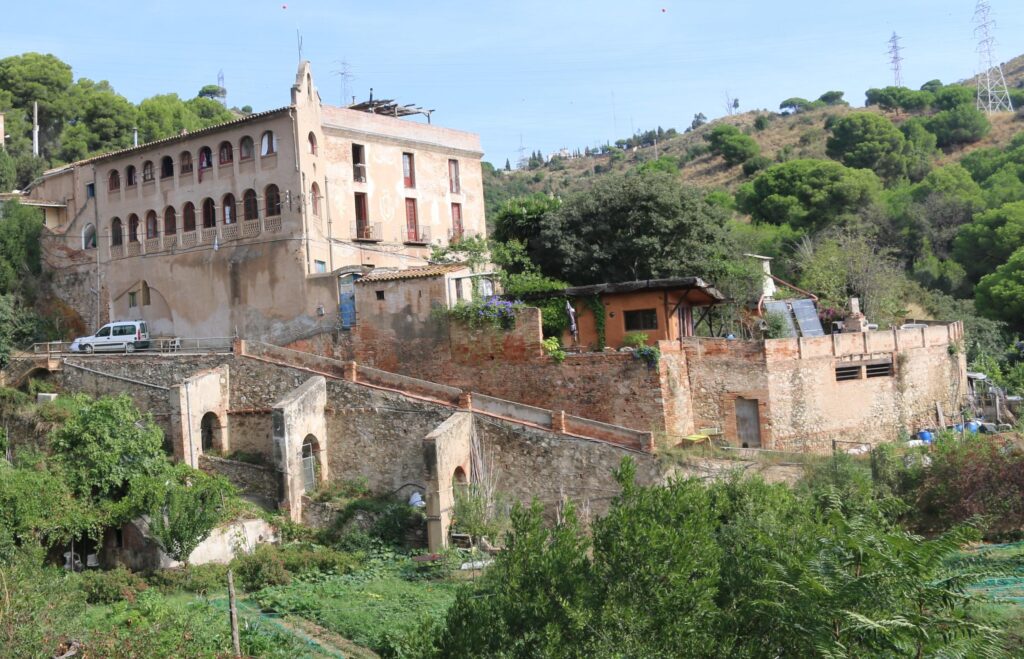
At the conference
The actual conference took place high up on a mountain. Northwest of the Canyelles metro station, there is an old monastery that has been occupied for over 20 years and was originally inhabited by nuns. It’s a super exciting housing project! It’s called Can Masdeu.

They have created allotments that city dwellers can use to grow vegetables and fruit. They also have an ancient rainwater collection system that you can even jump into. And figs grow in the garden!
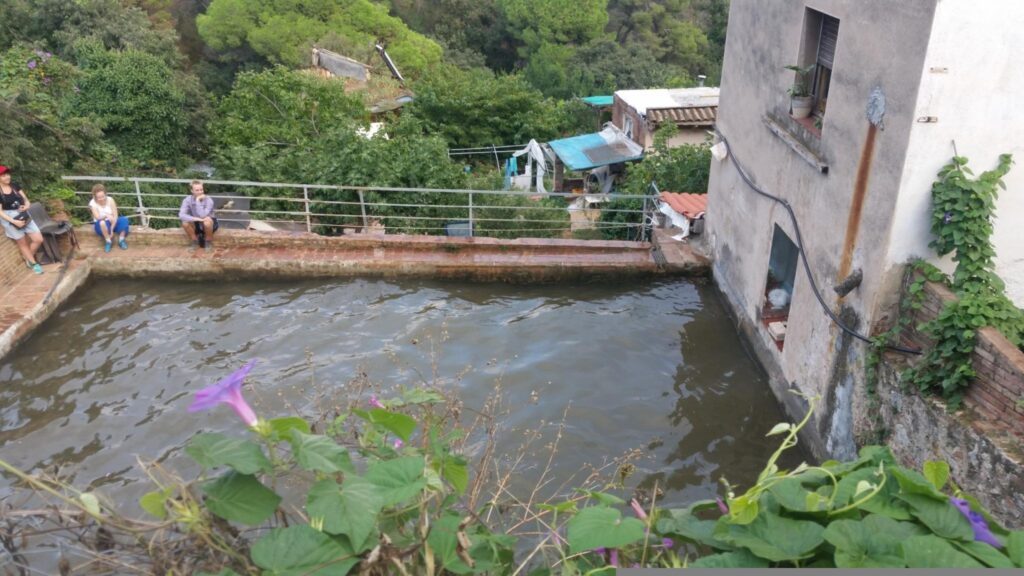
The lovely crew provided fantastic food at all times:

Some participants complained about the compost toilets, but anyone who stepped out of the toilet was rewarded with a view over flowering garden terraces and the city of Barcelona all the way to the Mediterranean Sea.
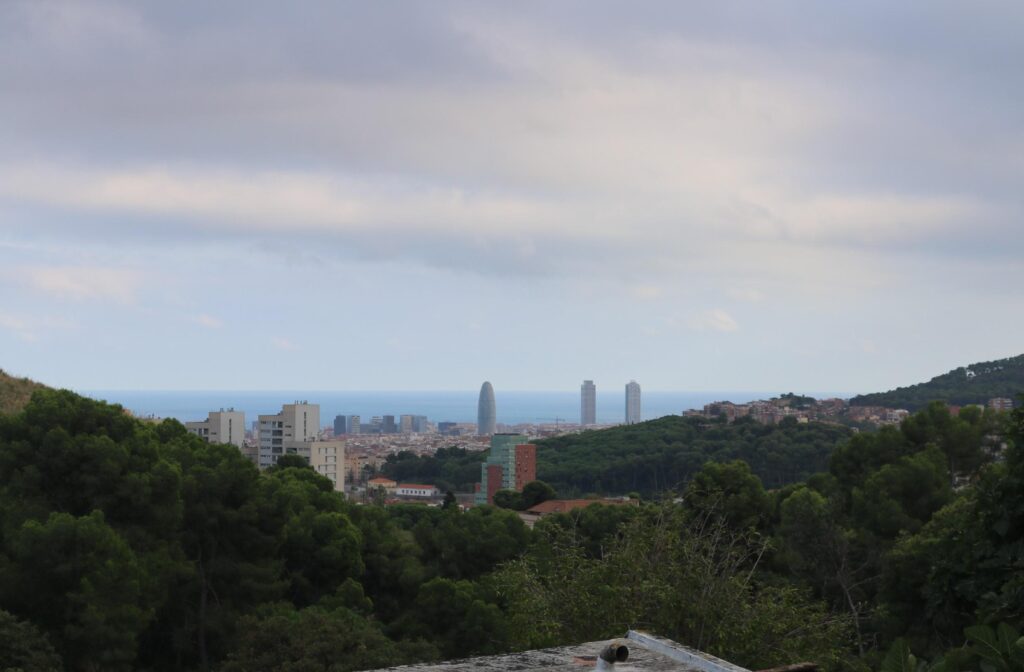
And the conference?
The conference was attended by activists, NGO representatives, artists, and people who deal with advertising on a scientific level. The participants came from Portugal, Spain, Catalonia, Italy, France, the Netherlands, Switzerland, Austria, Germany, Scotland, England, Congo, and the USA. There were many exciting contributions. An obligatory icebreaker game kicked off the conference on Friday morning.
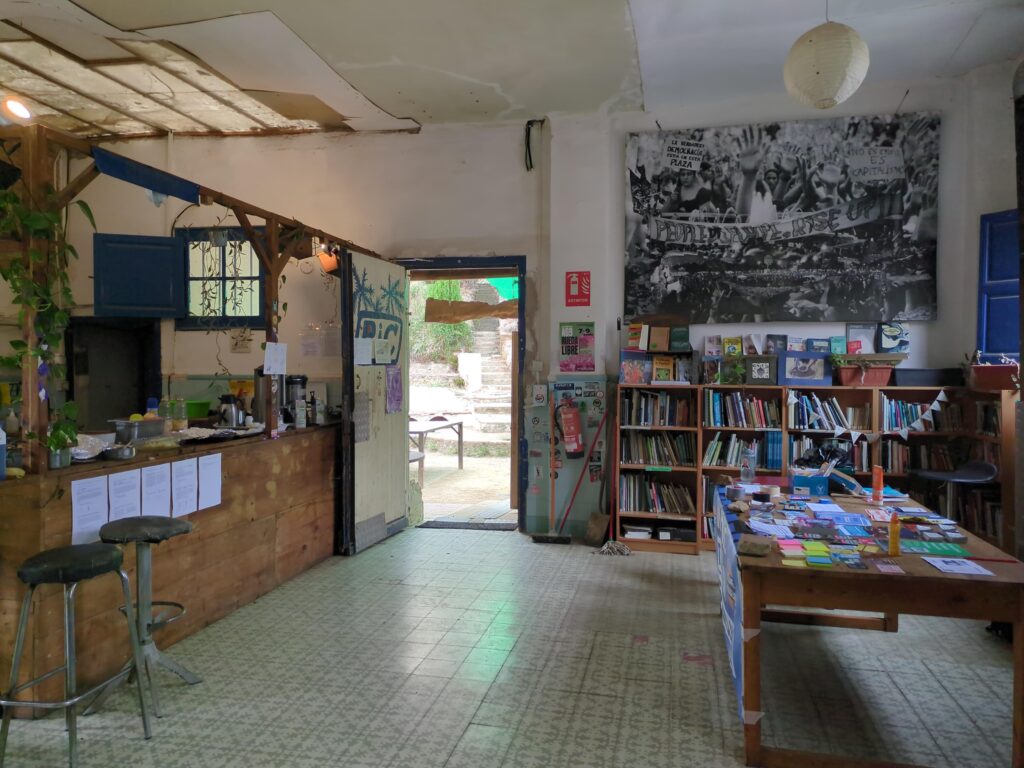
How many people support climate protection?
Phil, from a US lobby organization whose name we unfortunately forgot, provided some motivation on Friday afternoon. Dressed ironically in a tie, he gave an entertaining talk about misconceptions regarding support for climate protection. He asked us various estimation questions such as: “What percentage of people in the US support climate protection?”, “How many people support stricter laws for climate protection?”, “What percentage of the world’s population would give up 1% of their income for climate protection?”
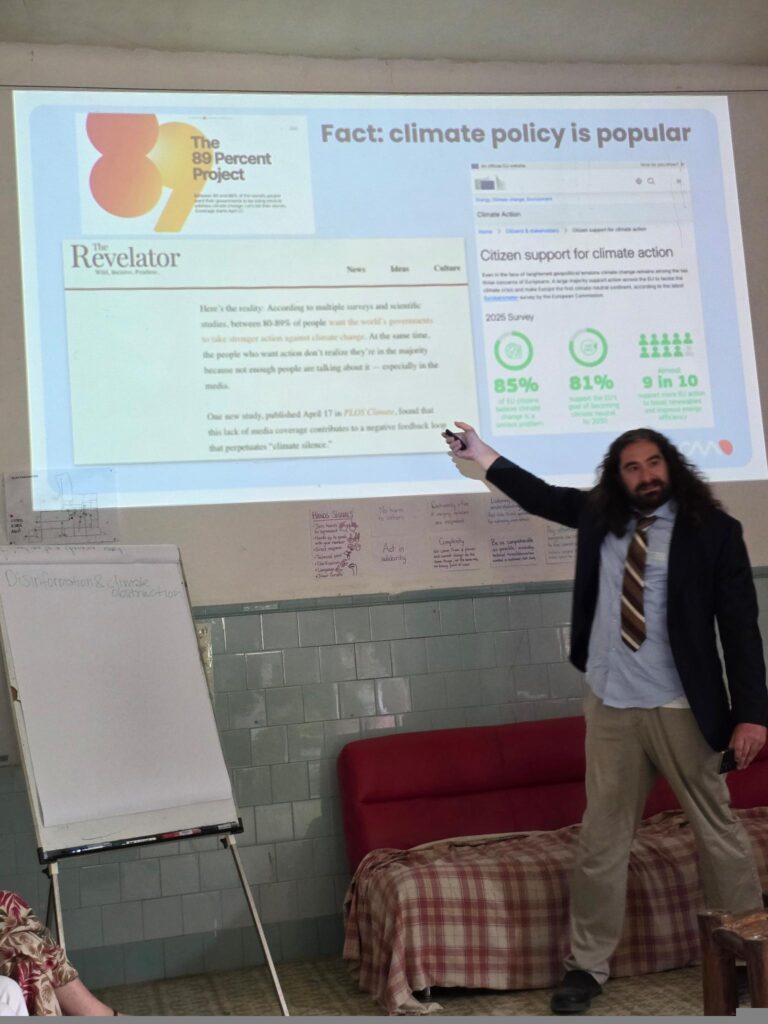
Hands up!
Phil had us raise our hands and counted the percentages upwards, with more and more people putting their hands down. When we arrived at the correct answer, which is regularly around 70%, only a few hands were still in the air. Even among Republicans in the US, 50-60% support climate protection measures.
This means that we systematically underestimate support for climate protection. We are not alone in this: 70-80% of politicians are in favor of climate protection, but assume that only 30% of voters are as well. Only among the 10-20% of the population who are against climate protection is it the other way around: they mistakenly believe themselves to be part of a large majority of 99% who share their opinion.
From facts to action planning
Phil’s conclusion: Most people already recognize the facts about climate change. Most people want more climate protection. They are also willing to contribute to this to a certain extent. We don’t have to laboriously convince people with facts. They are already convinced. We can and must move straight on to action planning. And politically active people like us should not be intimidated by the manipulations of the fossil fuel lobby.
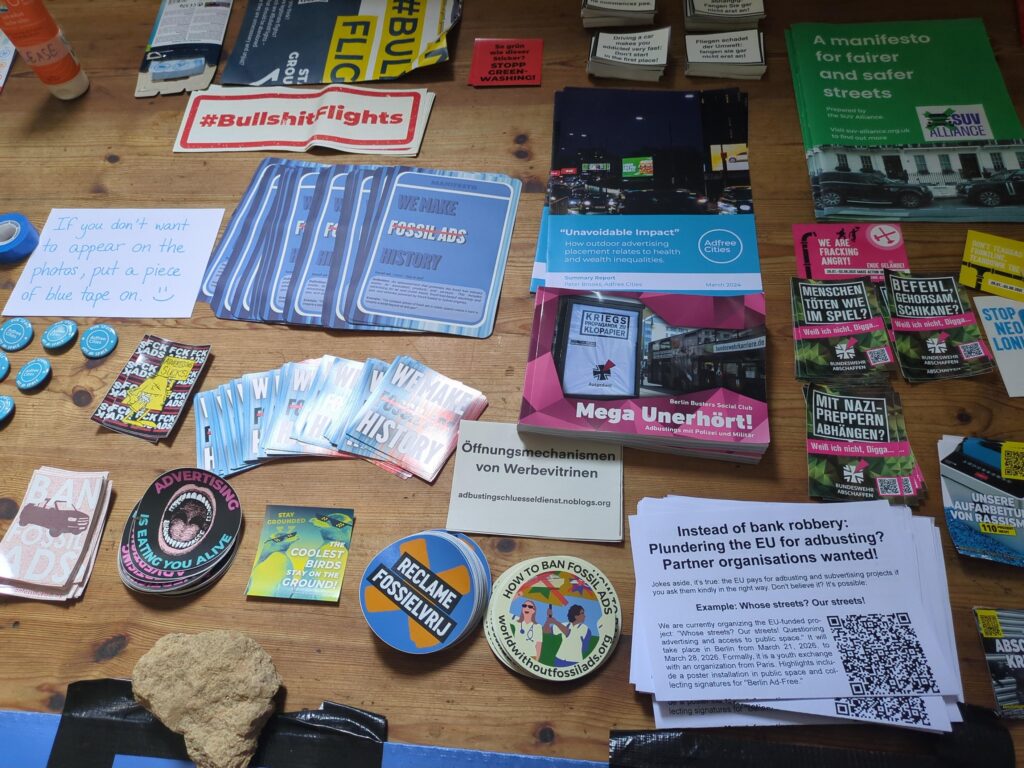
Celebrating successes
Boris Buster from Berlin’s Berlin Busters Social Club showed an example of what can be achieved when you don’t let yourself be intimidated. He reported on how adbusting against the police and military challenges these power structures and drives them out of the public space. Over the past 10 years, the Berlin adbusting scene has pushed police advertising at bus stops and Armed Forces Day out of the cityscape and achieved remarkable legal successes despite enormous repression. His recipe: celebrate successes.
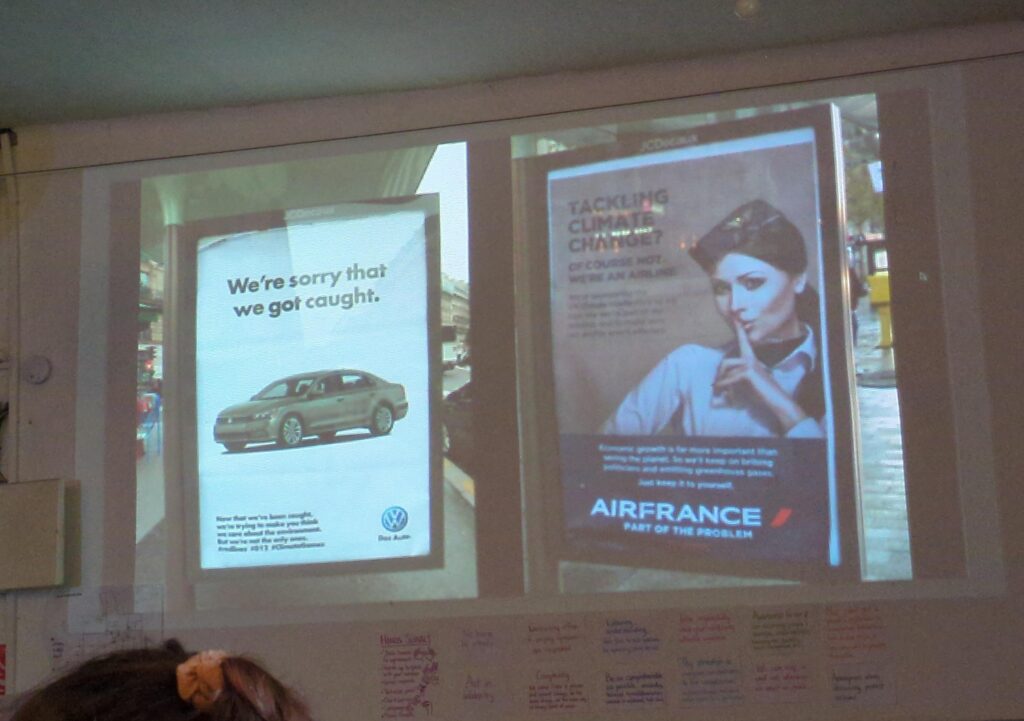
Movement issues “Theory of change”
In terms of content, things got off to a heated start on Friday afternoon. Activist Virginia Birch from the Autonomous University of Barcelona advocated linking climate struggles with social movements in order to overcome “green-digital” capitalism. Her call for a broad political movement contrasted with the political contexts of many other participants.
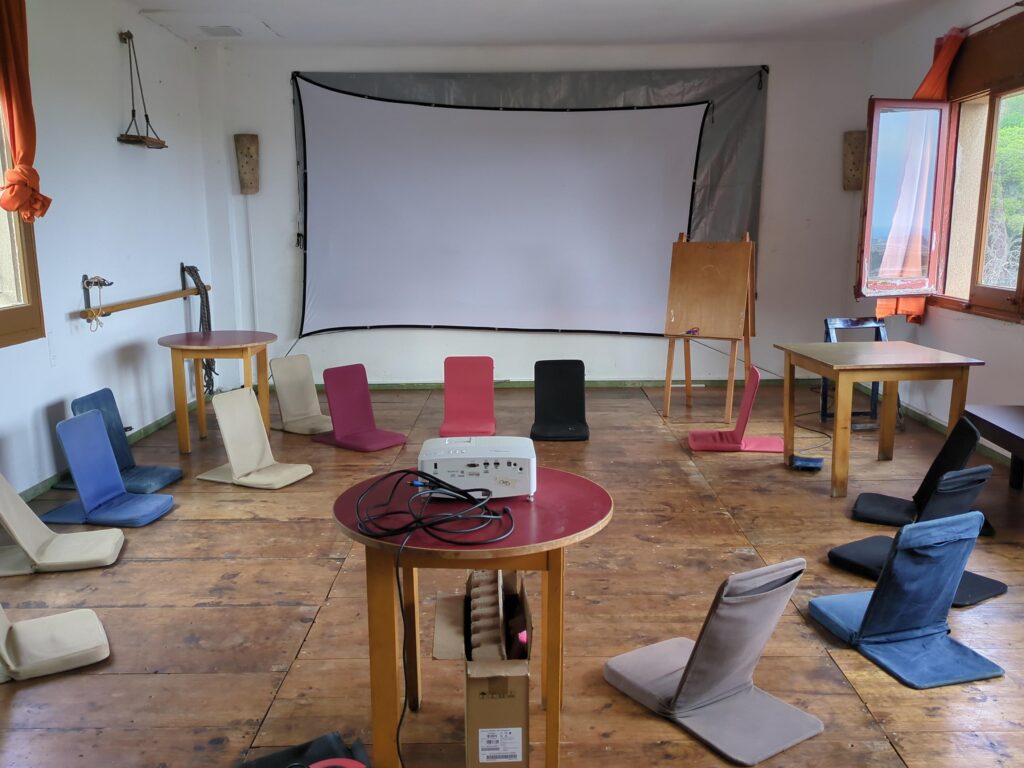
Area of tension NGOs <-> activism
The conference thus represented a fairly broad spectrum of approaches to challenging the (fossil fuel) advertising industry. This is precisely what got me and other participants thinking and discussing. For me, a negotiation between activism and lobbying by NGOs emerged.
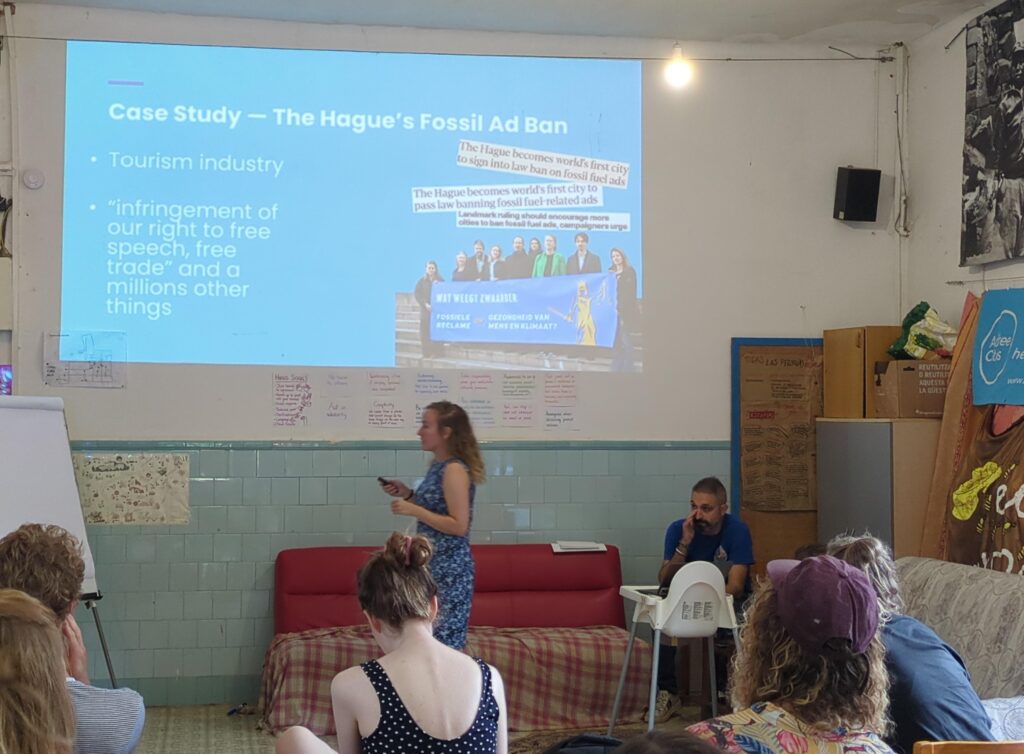
What theory of change?
A lawyer from Fossielvrij NL who gave a presentation said that it made political sense to accept any other advertising and to ban fossil fuel advertising by law for the time being. But is that compatible with a general anti-advertising stance? “Depends on your theory of change,” as one conference participant who wants to bring about change through activism and politics put it.
Small progress vs. big change?
At first, this situation left me feeling perplexed. I understand that it is better to make small progress than to stand still. But in view of increasing social inequality, armament, and the worsening climate catastrophe, I wondered whether and to what extent banning fossil fuel advertising in individual cities is effective.
I realized the benefits of conferences and personal conversations: after a brief period of discouragement, I found it very enriching and motivating to see how people are opposing this exploitative system in different ways. Different approaches do not have to be mutually exclusive. It is important to tolerate simultaneity and to celebrate even small steps. In this way, momentum can build up that benefits all forms of action, because even an activist approach needs recognition and support! For me, these were important lessons that this conference made possible through direct encounters.
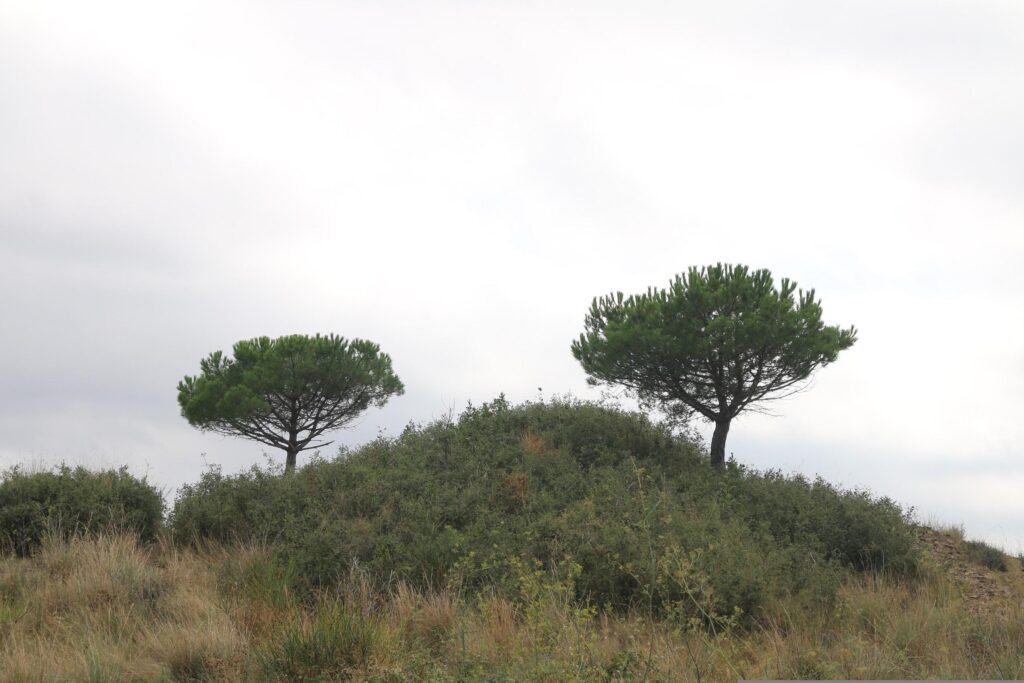
More Information:
Greenwashing also in Congo – A report on the lecture by Geraldine Deade Tanakula from Scientist Rebellion DRC:
https://vernetzungpartizipation.noblogs.org/post/2025/10/10/greenwashing-also-in-congo-a-report-on-the-lecture-by-geraldine-deade-tanakula-from-scientist-rebellion-drc/
